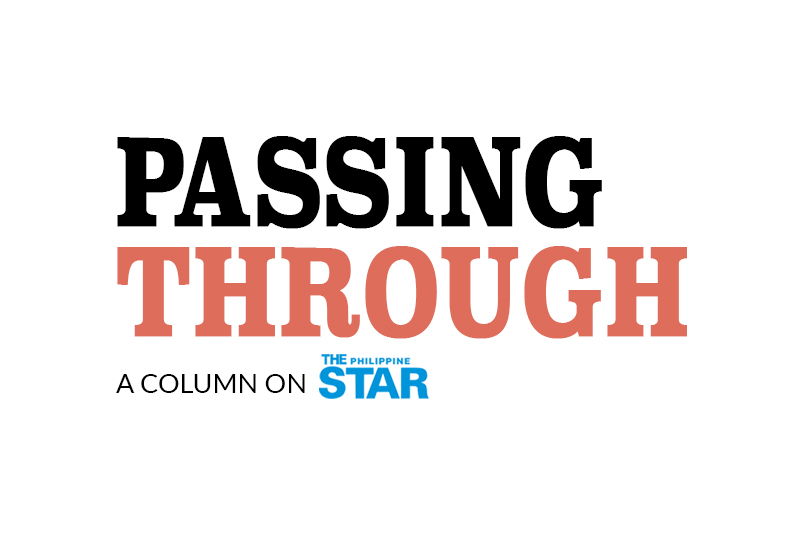by Peachy Vibal-Guioguio
media.Xchange President & The Philippine Star Columnist
Radio-frequency identification (RFID) is that ubiquitous sticker found in many cars on the road today that allows you to breeze through the tollway pay station without the bother of queuing, paying physically and waiting for your change (in case you don’t have the exact amount) — a process that could take minutes or even hours when the tollways are clogged especially during the traffic or holiday rush. Now with the COVID pandemic upon us, the old ways of doing things just simply will not do anymore, so it is a welcome development that Department of Transportation (DOT) Secretary Arthur Tugade has signed the Department Order (DO) weeks ago, requiring all toll operators to have 100 percent of its lanes on electronic toll collection by Nov. 2, 2020.
I have been an RFID user for years now and I find it convenient and easy to use and I just can’t imagine having to drive without it as it allowed me to go quickly using the RFID lanes that have been provided for RFID equipped cars in all our tollways here in Luzon. And now as the evidence has been mounting that the COVID19 virus could stick for some period of time in metals and paper such as coins or paper bills, the use of RFID for fast and non-contact payments in our toll-ways is something that all motorists must consider to ensure not only their convenience, but above all, safety for each and every member of one’s family.
I was invited to attend the recent press conference via ZOOM of Metro Pacific Tollways Corp. (MPTC) which just announced that it is all set for the full implementation of contactless toll collection transactions in all its expressways starting in November this year. This assurance was made during the virtual media briefing on MPTC’s “Road to RFID 100%” campaign, which highlighted the company’s programs to demonstrate its readiness to shift from cash to cashless payments. Roberto V. Bontia, President and General Manager of MPT South Corporation and MPTC’s RFID 100 Task Force Head, disclosed that some segments of MPTC expressways have gradually implemented the progressive conversion drive. “Around 75 percent of these lanes are already RFID-enabled,” he revealed.
The MPTC’s EasyTrip system has now more than 800,000 subscribers and almost 40 percent of all vehicles passing through MPTC tollways use RFID transactions, compared to 32 percent back in May, Bontia added. To help ease the shift into mandatory RFID transactions in MPTC expressways, he said mobile RFID installation teams provide 300 to 400 RFIDs per day, free of charge aside from a P200 to P500 initial load. He noted that EasyTrip RFID stickers are also sold online with instructions for self-installation at Shopee, an online retailer.
On the part of the Toll Regulatory Board (TRB), executive director Abraham Sales said toll operators would be required to set up booths before the entrances of expressways to check for and provide RFID stickers to all passing vehicles. He said vehicles not equipped with an RFID sticker beginning Nov. 2 would be barred entry in toll expressways. He cited the Department of Transportation (DOTr) Department Order 2020-012 issued on Aug.13 that declared the mandatory use of cashless transactions at tollways starting Nov. 2, with the goal of limiting interpersonal interactions to combat the spread of the coronavirus disease 2019. He said vehicles that managed to sneak inside an expressway without an RFID could face possible penalties.
Transportation Assistant Secretary for Road Transport and Infrastructure Mark Pastor said the DOTr and its attached agency, the Toll Regulatory Board (TRB), recognized the commitment and immediate support of the MPTC on the Department’s directive to implement cashless transactions for motorists when using toll expressways. “I am glad to note that a few days after the announcement, our toll operators, especially the MPTC, have risen to the challenge. It immediately expressed full support for the initiative. Thus, we have this event. Thank you very much for your cooperation,” Pastor said during the virtual press conference.
For his part, NLEX Corporation president and general manager J. Luigi L. Bautista said, “Minimizing physical contact and going cashless in our toll roads became an urgent priority because public health has taken on a whole new level of significance with COVID-19. Although we have launched the RFID as a payment option in our expressways for quite some time already, it has become more relevant with this global health crisis.” Indeed, I could not but fully concur with what has become the primordial issue of our time — how do you protect yourself and your family from the threat of COVID-19. It is incumbent for all of us, therefore, to take every measure of safety and protection from this disease that our government, our community and we ourselves could muster through the adoption of harm-reduction measures in our everyday lives and even in the way we drive.
Originally Published on Wheels PH.




